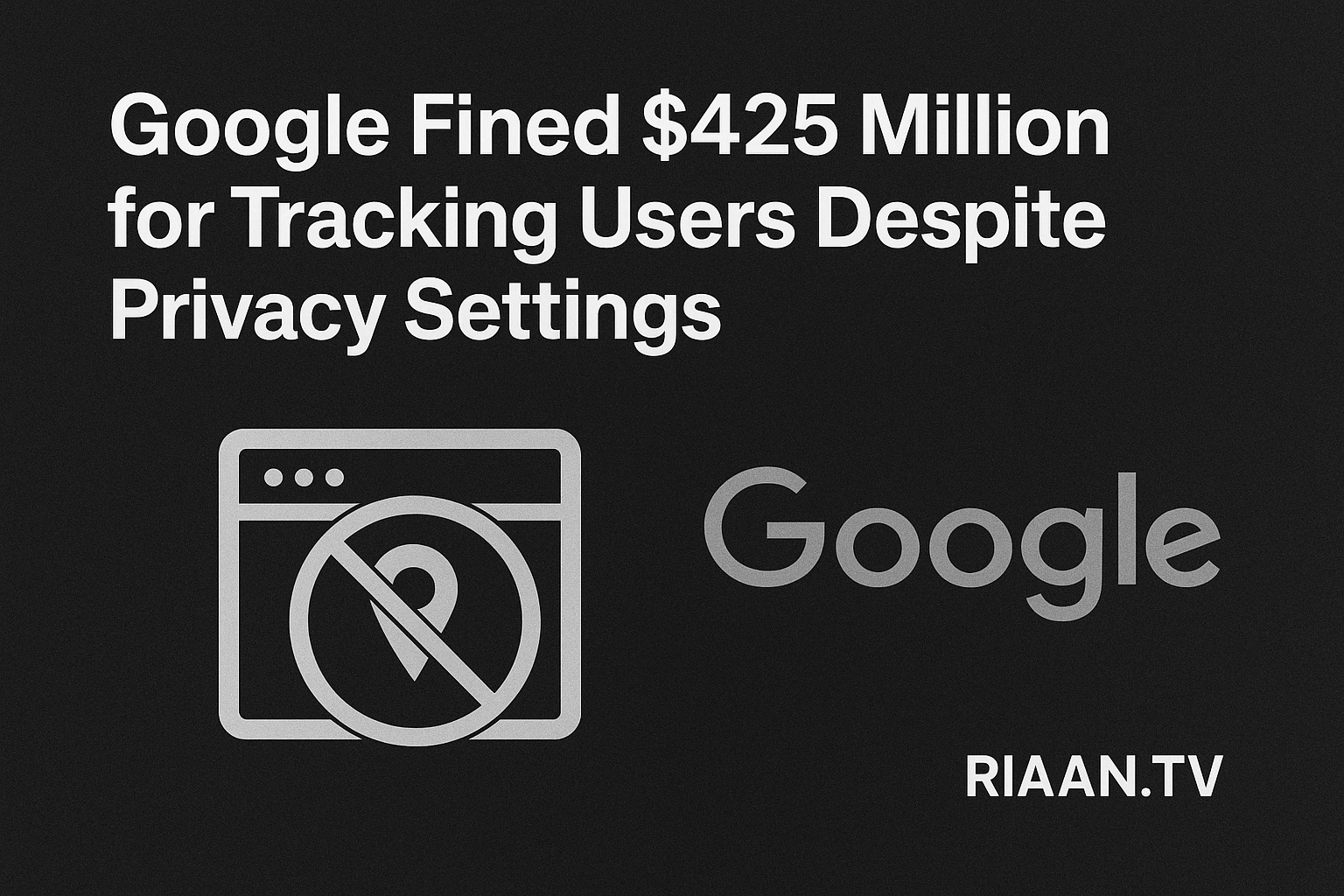Google has been hit with a massive $425 million fine after a U.S. federal jury found the tech giant guilty of collecting user data even when people had disabled tracking features. The verdict, delivered in San Francisco, marks another major setback for the company, raising critical questions about online privacy, data collection, and user trust.
What Happened?
The case stemmed from Google’s handling of its Web & App Activity settings, a feature that users believed would stop the company from tracking their movements and online activity. However, the lawsuit revealed that Google continued to harvest data from apps like Uber, Venmo, and Instagram over an eight-year period, affecting nearly 98 million users and 174 million devices.
Plaintiffs argued that Google misled them into thinking their data would remain private. Originally, the class-action lawsuit sought more than $31 billion in damages. While the jury did not find Google guilty of acting with malicious intent, it ruled that the company violated user privacy on two counts.
Why It Matters for Users
This ruling highlights a key issue: turning off tracking doesn’t always mean your data is safe. Even when users opt out, companies may still collect anonymized or pseudonymous information that can be tied back to consumer behavior.
For everyday users, this case is a reminder to:
-
Review app permissions regularly
-
Use privacy-focused tools and browsers
-
Stay informed about data policies when using major platforms
Google’s Defense
Google denied wrongdoing, claiming the data was non-personal, encrypted, and pseudonymous. The company stressed that the information was collected for service improvements rather than surveillance. Still, the jury’s verdict shows that courts are less willing to accept these defenses when user consent is unclear.
A Pattern of Privacy Battles
This isn’t Google’s first run-in with privacy regulators:
-
In 2025, it settled a $1.4 billion case in Texas for alleged state privacy law violations.
-
In 2024, it agreed to erase billions of browsing records linked to Chrome’s Incognito mode.
These repeated fines underline growing legal pressure on tech companies to be more transparent about how they handle user data.
What’s Next for Google?
The timing of this verdict is particularly significant. Just days earlier, Google avoided being forced to split up its business in a separate antitrust case, though it was ordered to share more data with competitors. Together, these rulings show that regulators are determined to rein in Big Tech’s dominance while protecting consumers.
The Bigger Picture
With rising concerns around digital privacy, this case sets a precedent for how courts may handle similar lawsuits in the future. For users, it reinforces the importance of understanding what “privacy settings” truly mean—and for companies, it sends a strong message: transparency is no longer optional.

